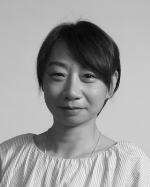Researchers
Professor André van Schaik is the Director of the International Centre for Neuromorphic Systems (ICNS). His research focuses on neuromorphic engineering and computational neuroscience.
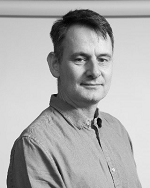
Gregory Cohen is an Associate Professor in Neuromorphic Systems-Algorithms and Deputy Director of ICNS. His interests include event-based vision sensors and algorithms, machine learning, spiking neural networks and biomedical signal analysis.

Professor Paul Breen's research focuses on bioelectronics and neuroscience and his interests involve investigating the potential of subsensory electrical noise as a treatment for the loss of sensory function.

Professor Paul Hurley is a Professor of Data Science at ICNS. His research interests are mathematical signal processing, data science, algorithms, information theory medical imaging and radio astronomy interferometry.

Dr Saeed Afshar is a Senior Lecturer with the International Centre for Neuromorphic Systems. His research seeks to investigate computational architectures and algorithms from the fields of neuroscience, machine learning, signal processing, and circuit design to develop novel vision and memory systems with superior performance in dynamic noisy environments when compared with the state of the art conventional computing approaches.
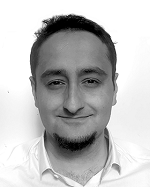
Yeshwanth Bethi is a Postdoctoral Research Fellow in Machine Learning and Neuromorphic Engineering.
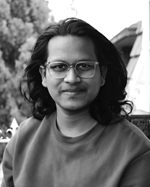
Dr Yossi Buskila is a research lecturer in Neurophysiology. His research focuses on the role of spike propagation delays in the way neuronal networks process informative signals.

Dr Sergio Chevtchenko is a researcher with the International Centre for Neuromorphic Systems.
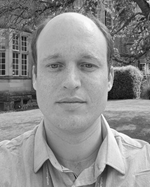
Dr Imogen Jones is a postdoctoral researcher at Western Sydney University. Her current research involves finding new space-based applications for neuromorphic vision sensors. This includes on-orbit observations of lightning and satellites and terrestrial observations of atmospheric and astronomical phenomena.
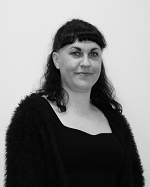
Dr Alexandre Marcireau joined ICNS in 2019 as a postdoctoral research fellow in Neuromorphic Engineering. His research focuses on bio-inspired computer vision, event vision sensors, event-based processing, and software development.

Dr Ali Mehrabi is a postdoctoral research fellow in Neuromorphic Hardware with the International Centre for Neuromorphic Systems. His position and research interests include Digital signal processing, Image processing, FPGA hardware design and Neuromorphic systems.
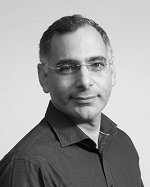
Dr Travis Monk is a Postdoctoral Researcher in Neuromorphic Systems. His current goal is to develop low-power, online algorithms that can detect certain features of interest from the world from event-based cameras.
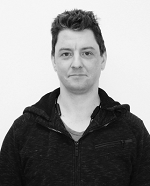
Dr Nic Ralph completed his PhD at the ICNS with a thesis on Exploring Space Situational Awareness using Neuromorphic Event-Based Cameras. His research focus is computer vision, machine learning, astronomy, space science and mechatronic design.
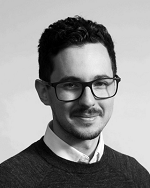
Dr Bharath is a Lecturer and Academic Program Advisor for the Master of Neuromorphic Engineering at ICNS. His research interests are to develop low-latency neuromorphic systems with solid grounding in vision and perception theory. Alongside research, he assists the Center with the development and coordination of its world first Master’s program in Neuromorphic Engineering.
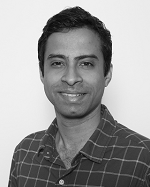
Dr Thakur has been trained by world leaders in the field of neuromorphic engineering, and his research expertise lies in neuromorphic computing, mixed-signal VLSI systems, computational neuroscience, probabilistic signal processing, and machine learning. His research interest is to understand the signal processing aspects of the brain and apply those to build novel intelligent systems.
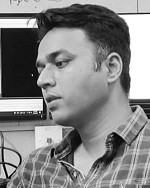
Dr Nicholas Tothill is a Senior Lecturer and Director of WSU Penrith Observatory. He joined WSU in 2011 as a Lecturer in the Computational Astrophysics, Imaging and Simulation group, and was promoted to Senior Lecturer in 2015. He became Director of WSU Penrith Observatory in 2018.
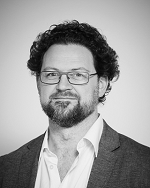
Dr Mark Wang is a postdoctoral fellow. His research focuses on neuromorphic engineering, mixed-signal/analog VLSI design, ASIC/SoC/FPGA design, computational neuroscience, deep network, machine leaning, cognition systems and signal processing.

Dr Ying Xu's research interests include Neuromorphic Engineering, Neuromorphic Auditory Systems and Applications, Mixed-signal VLSI Design, ASIC/SoC/FPGA Design and Machine Learning.
